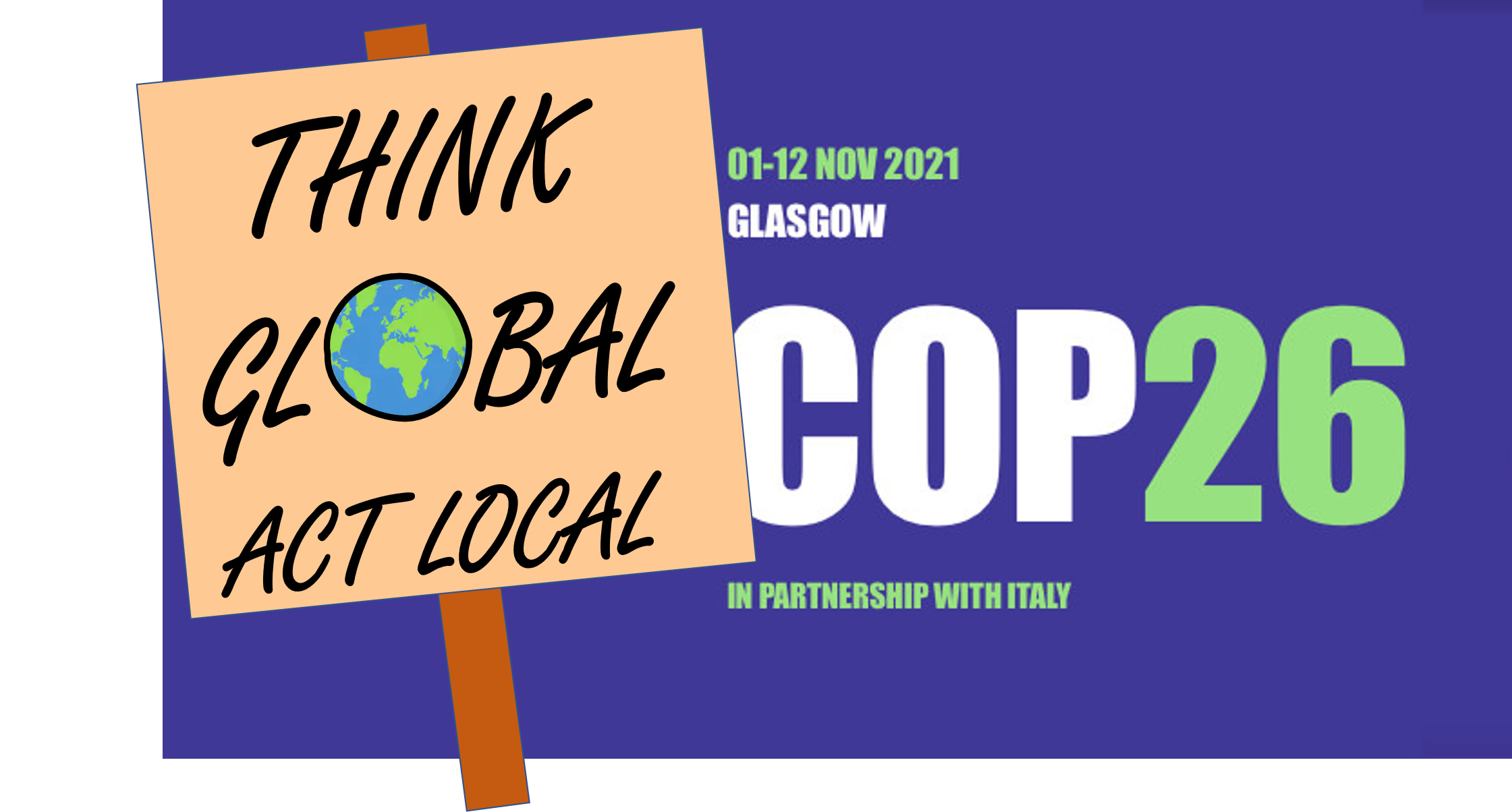Why does COP26 matter to local authorities?

World leaders are assembling in the UK to tackle climate change. Global companies (fossil fuels, automotive, logistics and bankers). Student occupations and Greta Thunberg. Probably the Duke and Duchess of Sussex. Media scrum. Why will COP26 Glasgow make any difference to local authorities, communities and residents?
The 26th Conference of the Parties (COP26) will be attended by countries that signed the 1994 United Nations Framework Convention on Climate Change. This is scheduled to take place in Glasgow from the 1st to the 12th of November 2021. At the heart of COP is the Paris Agreement.
The ‘Paris Agreement’ was agreed in 1995 at COP21.
It says nations must:
- reduce the amount of harmful greenhouse gasses produced and increase renewable types of energy like wind, solar and wave power,
- keep global temperature increase "well below" 2C and to try to limit it to 1.5C,
- review progress made on the agreement every five years and
- spend $100 billion dollars a year in climate finance to help poorer countries by 2020, with a commitment to further finance in the future.
COP26 is a huge opportunity for advancing global coordination to address climate change and environmental impacts but there are big challenges. The US pulled out of the Paris Agreement in 2020 but may re-join under Biden. COP25 at Madrid was sensationally addressed by Greta Thunberg, but there was little agreement on areas like offsetting carbon and financial aid for developing nations. COP24 in Poland agreed to change emissions reporting to every two years, from 2024. The biggest challenge of all will be the pandemic, not just for logistics, but for the impact on communities and local authority resources.
Although any new agreement resulting from COP26 will be at national level, many of the levers and interventions will be at the local level. This is only natural as the major contributors to greenhouse gases outside of energy include domains that fall within local authority responsibility, including traffic, public transport, sustainable development, waste and recycling. So too are local authority enablers and regulators for interventions such as permitting renewable energy sites and promoting the switch to EVs.
Many city authorities across the UK have adopted climate emergency programmes. Many have adopted zero emission or go-ultra-low emissions zones. It is understandable that the pandemic has caused priorities to temporarily shift in the near term. For some cities this will have meant collecting more baseline data without initiating projects or interventions to address pollution, air quality, emissions etc. For some cities, interventions will have been made during the pandemic such as introducing cycle lanes to help reduce emissions.
Groups such as UK:100, a local authority network of leaders of English and Scottish local authorities have committed to reaching net-zero community emissions by 2045. The target requires members to reach net-zero for their own direct emissions by 2030 and to deliver net-zero towns, cities or regions by 2045. Member cities include Edinburgh, Leeds, Leicester, Oxford, London, Bath, Bristol, Plymouth Newcastle and Nottingham, as well as regions such as Cornwall, the Cotswolds, Gloucestershire and the West Midlands. They are pressing government to match the targets and better fund these ambitions.
Even at the school gate we see pressure for change with groups such as Mums for Lungs who want to see the end of the school run and clean air zones to allow children to breath more easily. All of whom hope that the tragic death in 2013 of Ella Adoo-Kissi-Debrah, who lived near the South Circular Road in Lewisham, south-east London will not be without change. The Coroner’s Court, December 2020, noted that the levels of nitrogen dioxide (NO2) near Ella's home exceeded World Health Organization and European Union guidelines and found that air pollution "made a material contribution" to Ella's death.